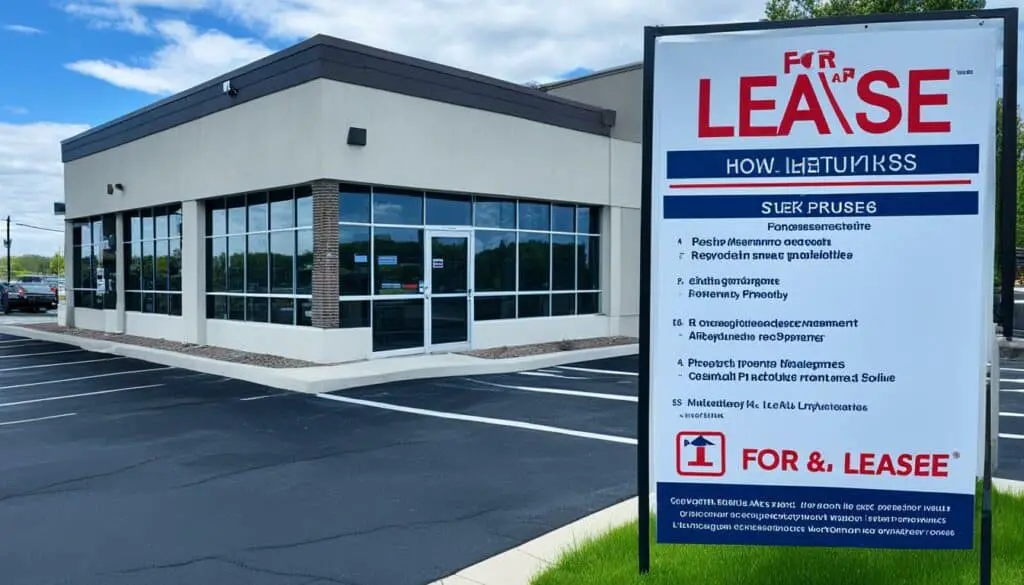The Basics of Triple Net (NNN) Leases: An Introductory Guide For Nonprofit Tenants
Disclaimer: This post may contain affiliate links. These links, if used and purchases made, we may earn a small commission. These affiliate programs do not impact the recommendations we make or the resources we refer you to. Our focus is on providing you the best resources for your nonprofit journey.
When the Dreams Foundation, a nonprofit organization dedicated to empowering underprivileged youth through education and mentorship, decided to open a new community center, they knew they needed to find a space that would suit their needs while also being cost-effective. After months of searching, they stumbled upon a charming building tucked away in the heart of their neighborhood. Excited by the possibilities, they reached out to the landlord to discuss leasing terms.Little did they know, this would be their introduction to the world of triple net (NNN) leases. The landlord explained the basics of the arrangement, detailing how the tenant is responsible for not only the base rent but also a share of the property’s expenses, including property taxes, insurance, and maintenance fees. This new lease structure was unlike anything the team had encountered before.
As the Dreams Foundation team delved deeper into their understanding of triple net leases, they discovered the benefits they offered to nonprofit tenants like themselves. The stability provided to the landlord by having the tenant share the financial burden of property expenses allowed for more flexibility in terms of rental rates and lease terms. This knowledge empowered the Dreams Foundation to negotiate a lease that suited their budget and aligned with their long-term goals.
Are you a nonprofit tenant exploring the world of triple net leases? Whether you’ve just heard of them or are looking to gain a deeper understanding of the terms and structure, this guide will provide you with the basics you need to navigate the world of triple net leases and make informed decisions for your organization.
Key Takeaways:
- A triple net (NNN) lease requires the tenant to pay their proportionate share of property expenses in addition to the base rent.
- This lease structure provides stability for landlords and flexibility for tenants.
- Tenant’s financial obligations include property taxes, insurance, and common area maintenance fees.
- Nonprofit tenants can negotiate rental rates and lease terms to align with their budget and long-term goals.
- Understanding the basics of triple net leases empowers nonprofit tenants to make informed decisions.
What Does a Triple Net Rental Rate Include?
In a triple net (NNN) lease, tenants are responsible for more than just the base rent. They also have to cover the operating expenses associated with the property. These expenses typically include property taxes, insurance, and common area maintenance fees.

Compared to a conventional lease, the rental rate in a triple net lease is higher. However, this higher rate comes with its own set of benefits for tenants. One key advantage is that tenants have more control over their expenses. They can negotiate property tax rates and insurance premiums, allowing them to potentially reduce their overall costs.
Despite the advantages, it’s worth considering the potential challenges of a triple net lease. The variability of operating expenses from year to year can make budgeting for annual rental expenses more difficult. Tenants need to be prepared for these fluctuations and factor them into their financial planning.
If you’re a tenant considering a triple net lease, make sure to carefully review the lease agreement to understand all financial obligations. It’s also important to assess whether this type of lease is the best option for your business objectives. Remember, triple net leases offer both stability and flexibility, but finding the right fit requires careful evaluation.
Other Lease Elements
In addition to the rental rate and operating expenses, a triple net (NNN) lease may include other elements that can impact the tenant’s financial obligations. It’s important for tenants to understand these elements and evaluate their long-term goals. Let’s explore some of the frequently asked questions and advantages of triple net leasing.
FAQs about NNN Leases
- What are tenant improvement allowances?
Tenant improvement allowances are incentives offered by landlords to cover the costs of improving the rented space. This can include renovations, upgrades, or modifications to tailor the space to the tenant’s specific needs.
- What are free rent periods?
In certain cases, landlords may offer a free rent period at the beginning of the lease. This allows tenants to set up their business and generate revenue without the immediate burden of rental payments.
Advantages of Triple Net Leasing
- Flexibility for Landlords and Tenants
- Capitalizing on Cost Controls
- Long-Term Strategic Planning
Triple net leases provide flexibility for both landlords and tenants. Landlords can focus on other aspects of their business while tenants have the opportunity to negotiate expenses associated with the property. By carefully evaluating the terms of the lease and understanding their long-term goals, tenants can make informed decisions that align with their interests.
| Advantages for Tenants | Advantages for Landlords |
|---|---|
| Greater control over expenses | Stable income stream |
| Flexibility to negotiate property taxes and insurance rates | Opportunity to focus on other business matters |
| Ability to tailor the rented space to specific needs | Increased value of the property |

Types of Commercial Leases
While triple net (NNN) leases are common in many markets, there are other types of lease structures to consider. Let’s explore some of them:
Gross Leases
A gross lease, also known as a full-service lease, involves the tenant paying a flat annual fee that includes an estimate of operating expenses. These expenses typically include property taxes, insurance, and maintenance costs. The landlord is responsible for covering any additional expenses that exceed the estimated amount. Gross leases provide tenants with a predictable budget since operating expenses are factored into the rent.
Single Net Leases
In a single net lease, the tenant pays the base rent along with a proportionate share of property taxes. The landlord is responsible for other operating expenses such as insurance and maintenance costs. Single net leases offer tenants a level of control and transparency over their property tax obligations.
Double Net Leases
Double net leases, also known as NN leases, add an additional expense for insurance on top of property taxes to the base rent. The tenant is responsible for paying property taxes, insurance, and the base rent. This type of lease offers landlords some financial protection, as the tenant shares the burden of property insurance.
Percentage Leases
A percentage lease structure combines a base rent with a percentage of the tenant’s monthly revenue. This arrangement is often used in retail settings where the tenant’s success is closely linked to the property’s performance. Landlords benefit from a portion of their tenant’s revenue, while tenants have the opportunity to pay a lower base rent if their business is struggling.
Each lease structure has its own advantages and considerations. Here’s a visual comparison of the different lease types:
| Lease Type | Tenant’s Financial Responsibilities | Landlord’s Financial Responsibilities |
|---|---|---|
| Triple Net (NNN) Lease | Property taxes, insurance, maintenance costs, and base rent | N/A |
| Gross Lease | Flat annual fee that includes operating expenses | Property taxes, insurance, maintenance costs |
| Single Net Lease | Property taxes and base rent | Insurance, maintenance costs |
| Double Net Lease | Property taxes, insurance, and base rent | Maintenance costs |
| Percentage Lease | Base rent and a percentage of monthly revenue | Property taxes, insurance, maintenance costs |
Understanding the different lease structures can help tenants make informed decisions that align with their financial goals and business requirements.

NNN Commercial Lease Tips
When negotiating a triple net (NNN) commercial lease, it is crucial for tenants to consider various factors to secure favorable terms. By following these tips, tenants can navigate the complexities of the lease agreement and ensure a successful partnership with the landlord.
Also, know what to do if there is a disagreement with the landlord.
Thoroughly Review the Lease Agreement
Before signing a triple net lease, it is essential to thoroughly review the lease agreement. Pay close attention to the NNN lease provisions, including the specific expenses covered, such as property taxes, insurance, and common area maintenance fees. Understanding these provisions will help tenants plan their budget effectively and avoid any unexpected financial burdens.
Evaluate Your Financial Obligations
Understanding your financial obligations is crucial when entering into a triple net lease. Along with base rent, tenants are responsible for their share of operating expenses. It is essential to carefully assess your ability to cover these expenses, taking into consideration your business’s cash flow and overall financial health. This evaluation will help you determine whether a triple net lease structure aligns with your financial capabilities.
Evaluate the Regional Real Estate Market
Before negotiating the terms of your triple net lease, it is important to evaluate the regional real estate market. Familiarize yourself with current property values, rental rates, and the overall demand for commercial space in the area. This knowledge will empower you to negotiate competitive lease terms and ensure that you are getting a fair deal.
Assess Long-Term Goals
When considering a triple net lease, tenants should assess their long-term goals. Evaluate whether the lease aligns with your business objectives and growth plans. Consider factors such as lease duration, renewal options, and the potential for expansion or relocation. This assessment will enable you to make an informed decision that supports your business’s future success.
Landlord Creditworthiness
It is essential for tenants to consider the creditworthiness of potential landlords. A financially stable landlord ensures that rent payments and property maintenance will be handled responsibly. Research the landlord’s reputation and track record to gain confidence in their ability to fulfill their obligations under the lease agreement.
By following these tips, tenants can navigate the complexities of the triple net lease structure, understand their financial obligations, and negotiate favorable terms. Thorough due diligence and careful evaluation of the lease agreement and the regional real estate market will empower tenants to make informed decisions that align with their long-term goals.
Conclusion
Triple net (NNN) leases provide a solid foundation for both landlords and tenants in the commercial real estate market. By understanding the basics of NNN lease structure and the advantages it offers, tenants can gain control over their expenses and negotiate favorable terms. Landlords, on the other hand, can focus on other aspects of their business while enjoying financial stability.
NNN leases come with numerous benefits that make them a preferred choice in the market. Tenants can manage and negotiate expenses, such as property taxes, insurance, and common area maintenance fees, giving them the flexibility to fit their financial goals. This arrangement also allows landlords to streamline their operations and focus on other business matters.
It is crucial for both parties to thoroughly review lease agreements to understand their rights and obligations. By doing so, tenants and landlords can make informed decisions that align with their unique long-term goals. This understanding ensures that all parties can navigate the complexities of triple net leases confidently.
As the NNN lease structure continues to offer a stable and flexible solution for commercial real estate transactions, it remains essential for tenants and landlords to prioritize thorough lease agreement reviews, negotiations, and consider their individual interests. By embracing the fundamental principles and benefits of triple net leases, parties on both sides of the agreement can achieve financial control and maximize their real estate investments.
FAQ
What is a triple net (NNN) lease?
A triple net (NNN) lease is a type of lease in which the tenant agrees to pay their proportionate share of expenses associated with the property, including property taxes, insurance, and common area maintenance fees.
What does the rental rate in a triple net lease include?
In a triple net (NNN) lease, the tenant is responsible for paying the base rent as well as the operating expenses, which include property taxes, insurance, and common area maintenance fees.
What are the advantages of a triple net (NNN) lease?
Triple net leases provide stability for landlords and flexibility for tenants. Tenants have more control over their expenses and can negotiate property taxes and insurance rates.
Are there other elements included in a triple net (NNN) lease?
Yes, a triple net (NNN) lease may also include elements such as tenant improvement allowances and free rent periods at the beginning of the lease.
What are the other types of lease structures?
Other lease structures to consider include full-service or gross leases, single net leases, double net leases, and percentage leases.
What should tenants consider when negotiating a triple net (NNN) lease?
Tenants should thoroughly review the lease agreement, understand their financial obligations, evaluate the regional real estate market, and assess their long-term goals.
What benefits do triple net (NNN) leases offer?
Triple net leases provide stability, flexibility, and financial control. Tenants have the opportunity to manage and negotiate property expenses, while landlords can focus on other aspects of their business.







